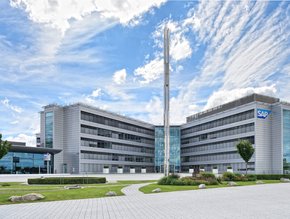The Economist Intelligence Unit: NA Nearshoring Not Likely

With global supply chains comes higher risk, something we learned all too well when the impacts of COVID-19 started hitting our supply chains. The semiconductor shortage fueled further motivation for organisations and policymakers to start carefully considering nearshoring.
However, a new report by the Economist Intelligence Unit (The EIU) that examines the prospects for supply chain reshoring to North America says nearshoring will remain the exception rather than the rule and that North America will not see significant supply chain reshoring in 2021-25.
- North America’s lack of competitiveness compared to Asian economies (the very thing which drove business away) will continue to deter companies and investors.
- Lingering protectionism and cross-border tensions within North America will present another obstacle, complicating options for arbitraging production costs throughout the region.
- These factors will discourage the types of investment required to transform North America into a viable, self-sustaining supply-chain ecosystem.
Costs Remain an Issue
The EIU believes that expectations for developing North American alternatives are overblown, and businesses will continue to favour the convenience, reliability and cost-effectiveness of Asia.
Andrew Viteritti, The EIU’s commerce and regulations lead, says, “North America boasts several advantages—including years of economic integration, a large free-trade area, short travel times and new opportunities for policy coordination under USMCA. However, a number of obstacles will prevent businesses and investors from viewing North America as a realistic production substitute for Asia, at least through the medium term.”
We’re all very well aware of Asia’s competitive advantage of low-cost manufacturing capabilities. The EIU believes Asia’s more successful mitigation of pandemic disruptions will also work in their favour.
Protectionism and cross-border tensions
Even without Trump, protectionism and cross-border tensions will persist, says the EIU, presenting another.
Protectionism and cross-border tensions within North America will present another obstacle and notably complicating options for arbitraging production costs throughout the region.
Mr Viteritti says, “Mr Biden has gone to great lengths to signal that the US ‘is back’ as an international partner, eschewing the ‘America First’ strategy of his predecessor, Donald Trump. However, it is still not clear how Mr Biden will reconcile this approach with his goal of revitalising US manufacturing and jobs.”
Tensions remain between the US and Canada
Despite a new President, tensions remain between the US and Canada over lingering US tariffs. There also are concerns over the rise of nationalist and statist policies in Mexico, which are compromising that country’s potential to serve as a cost-effective production hub for North America, says the EIU.
Remodelling supply chains for nearshoring requires great investment. However, investors will continue to be deterred by these factors and favour Asia’s cost-focused production hubs.
Reflecting Asia’s sustained importance in global supply-chain networks, the EIU forecasts that Asia’s share of global exports will continue to rise between 2021 and 2025, while North America’s share will remain unchanged.
Download the full report https://www.eiu.com/n/campaigns/north-america-supply-chains/






